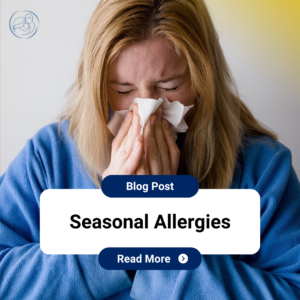Seasonal Allergies

Seasonal allergies, often referred to as hay fever or allergic rhinitis, affect millions of people worldwide, causing symptoms that can significantly impact daily life. Understanding these allergies, their triggers, symptoms, and management strategies can help sufferers navigate through the seasons more comfortably.
Understanding Seasonal Allergies
Seasonal allergies are immune system responses triggered by exposure to allergens such as pollen from trees, grasses, and weeds, or spores from molds that thrive in certain conditions. Unlike perennial allergies that occur year-round, seasonal allergies are typically most severe during specific periods when these allergens are at their peak.
Common Triggers
The main culprits behind seasonal allergies vary depending on the time of year and geographic location:
- Spring: Tree pollen is the primary trigger.
- Summer: Grass pollen takes center stage.
- Late Summer and Fall: Weed pollen and mold spores become prevalent.
Symptoms
Symptoms of seasonal allergies can range from mild to severe and include:
- Sneezing
- Runny or stuffy nose
- Itchy, watery eyes
- Itchy throat or ear canals
- Ear congestion
- Postnasal drainage
These symptoms can lead to more significant problems such as sleep disturbances, decreased concentration and performance at school or work, and impaired daytime function.
Managing Seasonal Allergies
Effective management of seasonal allergies often requires a multifaceted approach:
1. Avoidance of Allergens
Knowing what triggers your allergies and when these allergens are most prevalent can help you minimize exposure. Checking daily pollen counts and staying indoors during peak times can reduce symptoms.
2. Medication
A variety of over-the-counter and prescription medications can relieve symptoms:
- Antihistamines reduce sneezing, itching, and runny nose.
- Nasal corticosteroids are highly effective for treating nasal symptoms.
- Decongestants help relieve nasal stuffiness.
- Leukotriene receptor antagonists block the action of certain immune system chemicals.
3. Immunotherapy
For those who don’t find relief from medications or wish to reduce long-term medication use, immunotherapy (allergy shots or tablets) can be an option. This treatment involves exposing the body to gradually increasing amounts of the allergen, aiming to change the immune system’s response.
4. Lifestyle Modifications
Simple changes in daily routines can also alleviate symptoms, such as showering before bed to remove pollen from hair and skin, using high-efficiency particulate air (HEPA) filters in home ventilation systems, and keeping windows closed during high pollen seasons.
The Path Forward
Living with seasonal allergies requires an ongoing commitment to understanding and managing your condition. By working closely with healthcare providers, individuals can develop a personalized plan that minimizes symptoms and improves quality of life. Awareness of the condition, combined with proactive management strategies, can make seasonal allergies manageable, allowing people to enjoy the changing seasons more fully.
